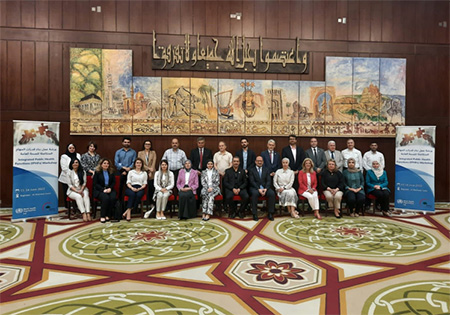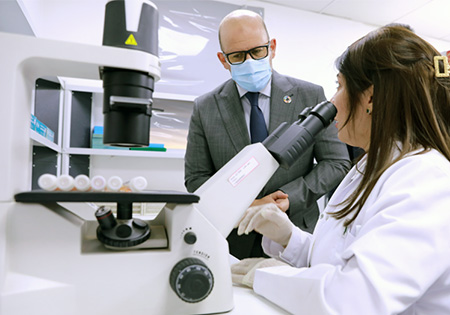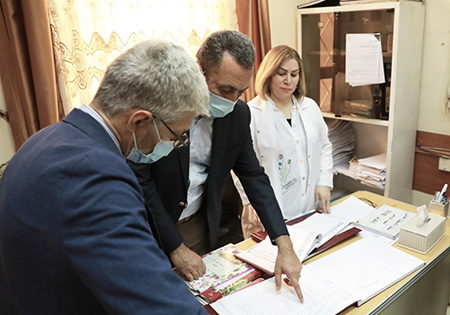 The polio transition mission to Iraq aims to advance the polio transition process and integrate polio programme capacities into overall public health functionsBaghdad, 16 June 2022— A country, regional and global team from the World Health Organization (WHO) concluded today a five-day support mission to Iraq to advance the polio transition process and integrate polio programme capacities into overall public health functions.
The polio transition mission to Iraq aims to advance the polio transition process and integrate polio programme capacities into overall public health functionsBaghdad, 16 June 2022— A country, regional and global team from the World Health Organization (WHO) concluded today a five-day support mission to Iraq to advance the polio transition process and integrate polio programme capacities into overall public health functions.
As the world gets closer to the goal of polio eradication, adequate support to priority countries like Iraq is paramount to achieving the goal, particularly in integrating polio surveillance into the national health surveillance system, increasing preparedness for any importation of cases, strengthening the expanded programme on immunization (EPI) and managing integrated public health functions to maintain the polio-free status of Iraq.
"Iraq is one of the first countries worldwide where this integration has been seamlessly happening over the past few years," said Dr Ahmed Zouiten, WHO Representative for WHO Iraq.
 The polio transition process has been designed to build the capacity of the polio workers to support broader health priorities, including disease surveillance."A successful transition of polio assets is essential to sustain a polio-free world, strengthen essential immunization and disease surveillance, and boost the country's emergency preparedness and response to infectious diseases outbreaks."
The polio transition process has been designed to build the capacity of the polio workers to support broader health priorities, including disease surveillance."A successful transition of polio assets is essential to sustain a polio-free world, strengthen essential immunization and disease surveillance, and boost the country's emergency preparedness and response to infectious diseases outbreaks."
The mission looked into ensuring that essential functions are maintained in Iraq as it transitions out of Global Polio Eradication Initiative (GPEI) support. The team paid a visit to the Central Public Health Laboratory, the Communicable Disease Control Department and the Integrated Surveillance Department. The team also visited one of Baghdad's primary health care centres to witness firsthand the performance of immunization and other essential health services.
The polio transition process has been designed to build the capacity of the polio workers to support broader health priorities, including improving essential immunization, disease surveillance, and outbreak preparedness and response, both in primary health care centres and beyond.
 The team visits one of Baghdad's primary health care centres to witness firsthand the performance of immunization and other essential health services."Polio transition planning will provide us with a clear roadmap to maintain the well-structured networks that have historically contributed far beyond polio eradication, playing a crucial role in reaching underserved communities in some of the most vulnerable settings, including Iraq." Added Dr Zouiten.
The team visits one of Baghdad's primary health care centres to witness firsthand the performance of immunization and other essential health services."Polio transition planning will provide us with a clear roadmap to maintain the well-structured networks that have historically contributed far beyond polio eradication, playing a crucial role in reaching underserved communities in some of the most vulnerable settings, including Iraq." Added Dr Zouiten.
"But for this transition to succeed, we want to look at those places where we can improve our work together, where we can reach the hard to reach and where we will not leave anyone behind."


